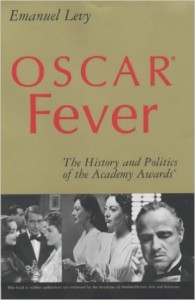Fox (Palomar Pictures International Production)
Despite some flaws, Sleuth is a stylishly made intelligent thriller, full of twists and turns, boasting wonderful performances, both Oscar-nominated, from Laurence Olivier and Michael Caine
| Sleuth | |
|---|---|

Theatrical release poster
|
|
Grade: B+ (**** out of *****)
Caine plays Milo Tindle, the owner of a chain of hair salons, who’s invited to the old estate of Andrew Wyke (Olivier), a famous detective-novelist, known for his penchant for elaborate puzzles and games.
Upon arrival, Andrew tells Milo that he’s aware of his affair with his estranged wife but that he is not upset, jealous, or angry. Instead, he proposes a game that promises to benefit both men with no costs to either. Andrew’s idea is for Milo to put on a clown disguise and steal his wife’s jewels, thus allowing him (Andrew) to collect insurance money and for Milo to keep the stolen goods and support his spoiled mistress in a style she’s used to.
Smart and snobbish Andrew doesn’t realize that his adversary Milo, despite class and education differences, is very much his match, perhaps even smarter.
Overly long (138 minutes) and too theatrical, Sleuth reveals its origins: It’s based as it is on Anthony’s Shaffer’s stage play that’s been done in just about every language. Shaffer, who wrote in the same year the script of “Frenzy” for Hitchcock, does a so-so job in his efforts to open up the play. There are shots of wigs, toys, dolls, and costumes.
Nonetheless, the writer, assisted by director Joseph Mankiewicz, comes up with some unexpected, even shocking reversals, leading to a surprise ending that frustrated some movie critics while satisfied others.
“Sleuth” is very much an actor’s film, and indeed, both Brit stars, who have never acted together before, dig deep into their roles with relish and joy, using every trick in their possession, which accounts for our intermittent pleasure in this cat-and-mouse yarn.
This was the last theatrical film in the long career of director-screenwriter Joseph Mankiewicz, Oscar-winner for “A Letter to Three Wives” and “All About Eve.”
In a self-referential move, Makniewicz names Andrew’s wife Margo Channing as a tribute to his 1950 Oscar-winning film “All About Eve,” in which, as everybody knows, Bette Davis’ flamboyant character was called Margo Channing. In this film, we see only a portrait of Andrew’s wife, for which Joanne Woodward posed as a favor to the helmer, but the name Channing appears on the credits.
Polish production values, particularly sets and costumes, help immensely this intimate drama for two, which is decorated by few secondary characters, such as the local inspector and police constable.
Oscar Alert
Oscar Nominations: 4
Director: Joseph L. Mankiewicz
Actor: Laurence Olivier
Actor: Michael Caine
Score (Original): John Addison
Oscar Awards: None
Oscar Context:
This was Olivier’s eighth Oscar nomination (out of a total of 10), and Caine’s second nod after “Alfie, in 1966.
In 1972, the major Oscars were split between Coppola’s “The Godfather” and Bob Fosse’s musical “Cabaret.”
Marlon Brando won the Best Actor for “The Godfather,” and Bob Fosse the directing award for “Cabaret.” Surprisingly, the Scoring award was given to Chaplin, Raymond Rasch, and Larry Russell for “Limelight,” a movie made in 1952 but released in the U.S. in 1972, thus becoming eligible for Oscar considerations. John Addison’s score was added to the nominees’ list, when the Academy disqualified Nino Rota’s music in “The Godfather,” because some parts of it had appeared in other films.
Credits:
Directed by Joseph L. Mankiewicz
Produced by Morton Gottlieb
Screenplay by Anthony Shaffer, based on Sleuth by Anthony Shaffer
Music by John Addison
Cinematography Oswald Morris
Edited by Richard Marden
Production company: Palomar Pictures International
Distributed by 20th Century Fox
Release date: December 10, 1972 (US)
Running time: 138 minutes
Budget $3.5 million
Box office $5,750,000 (rentals)











